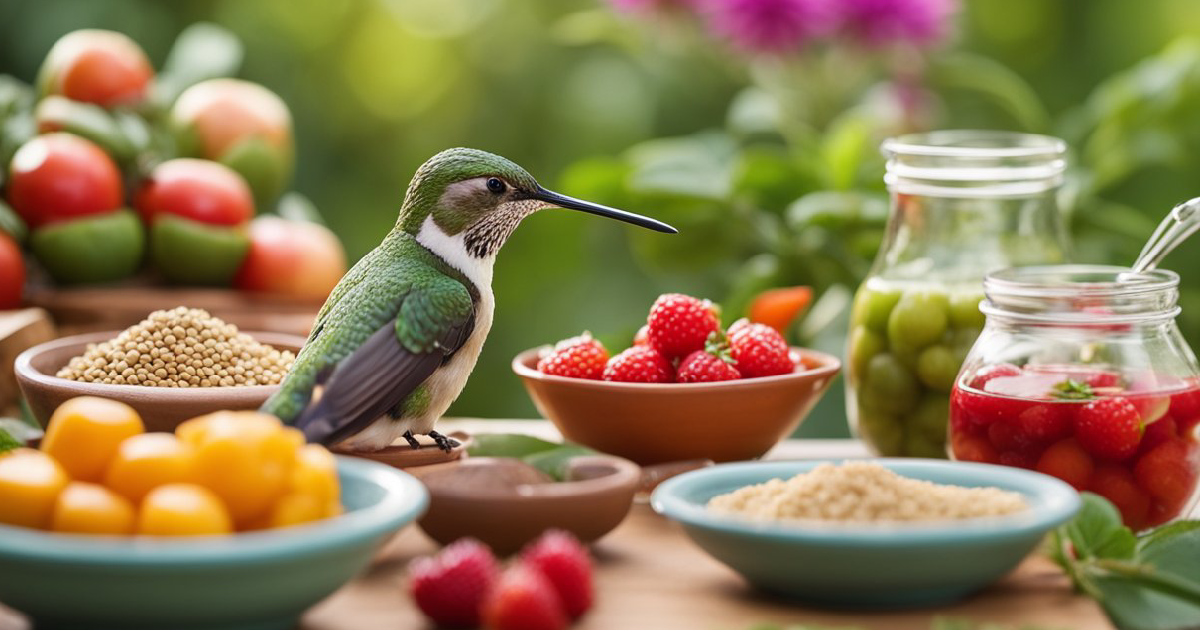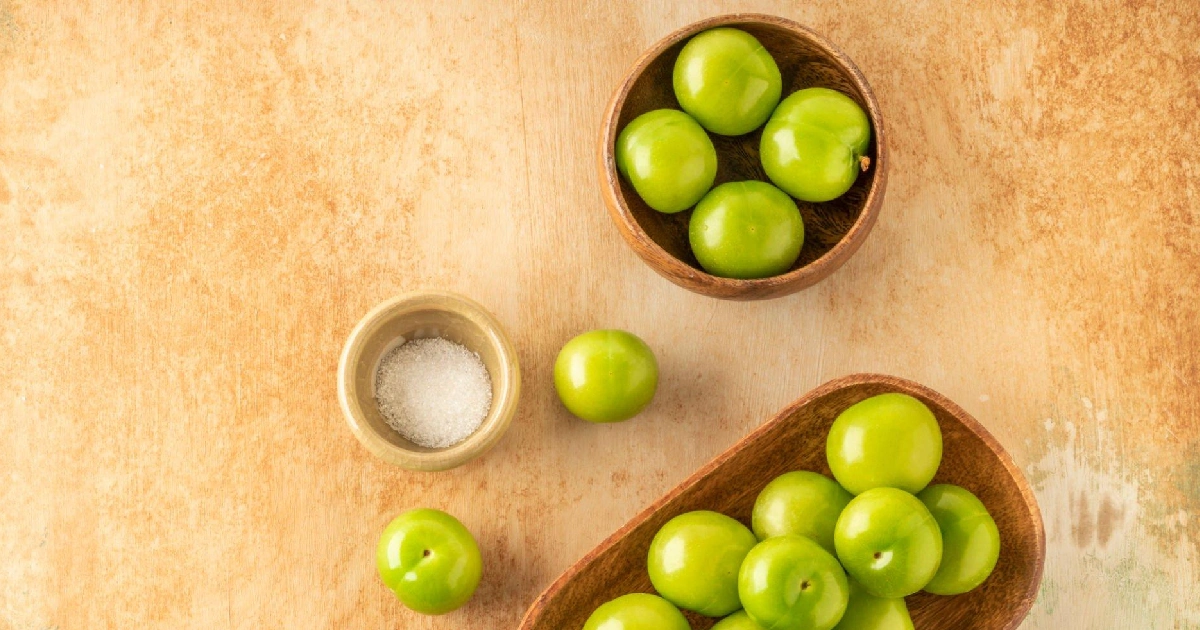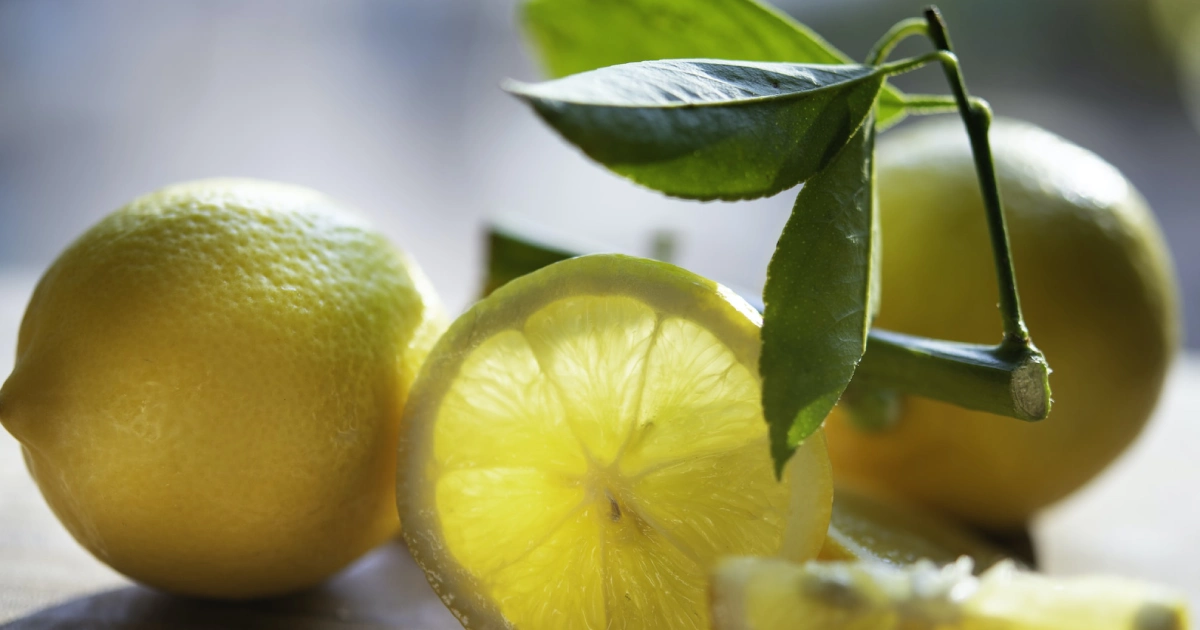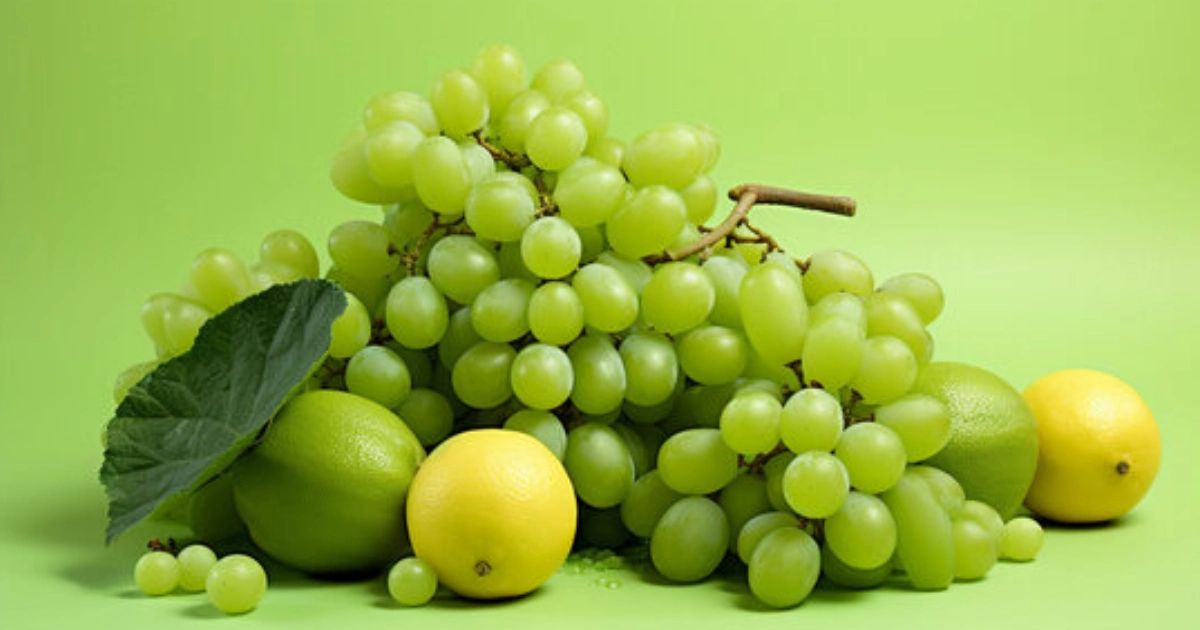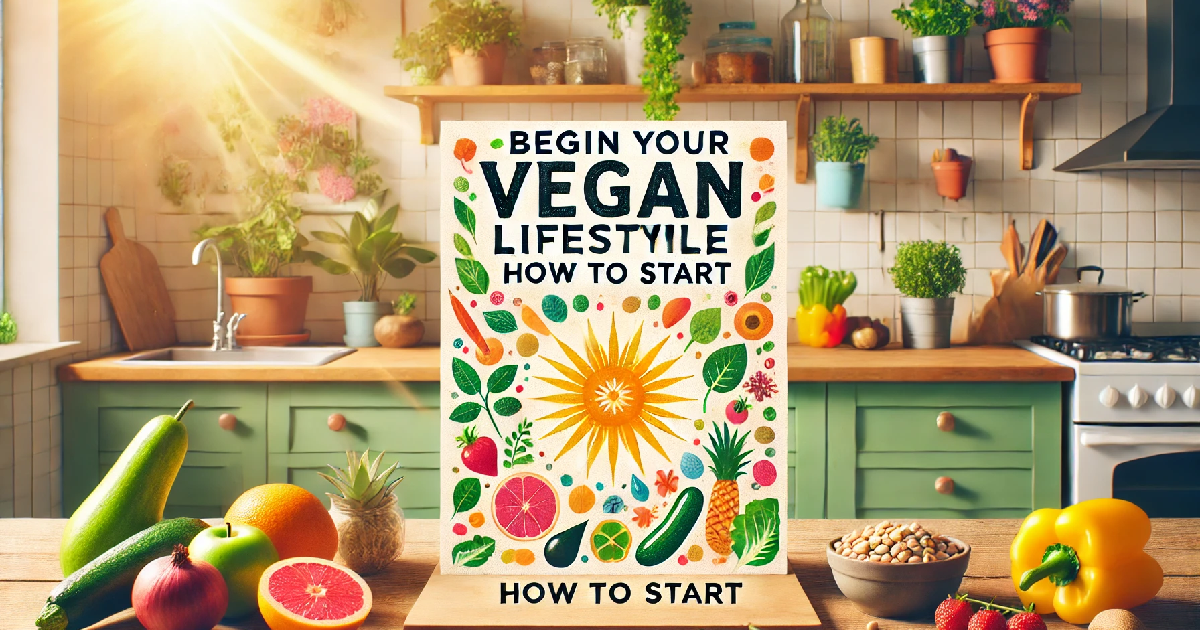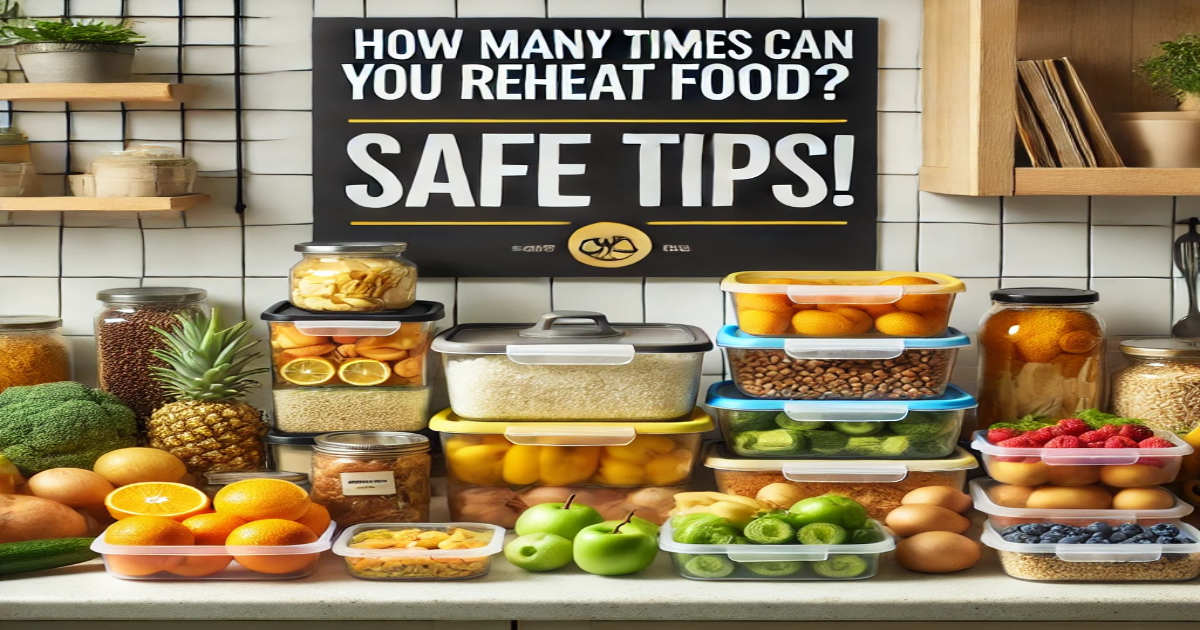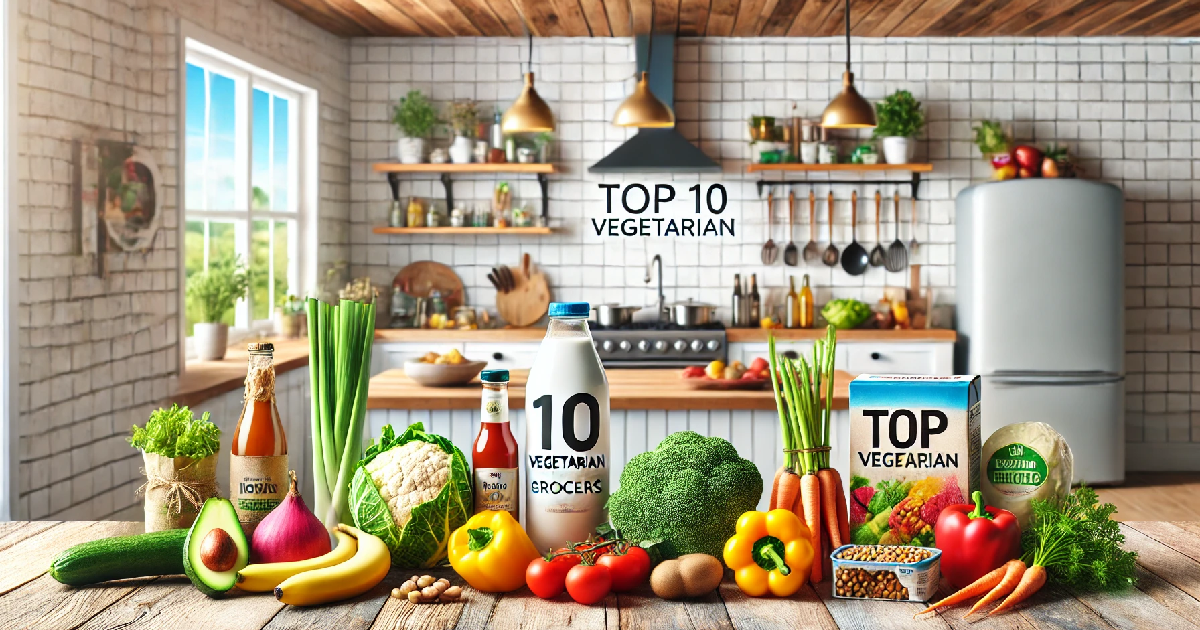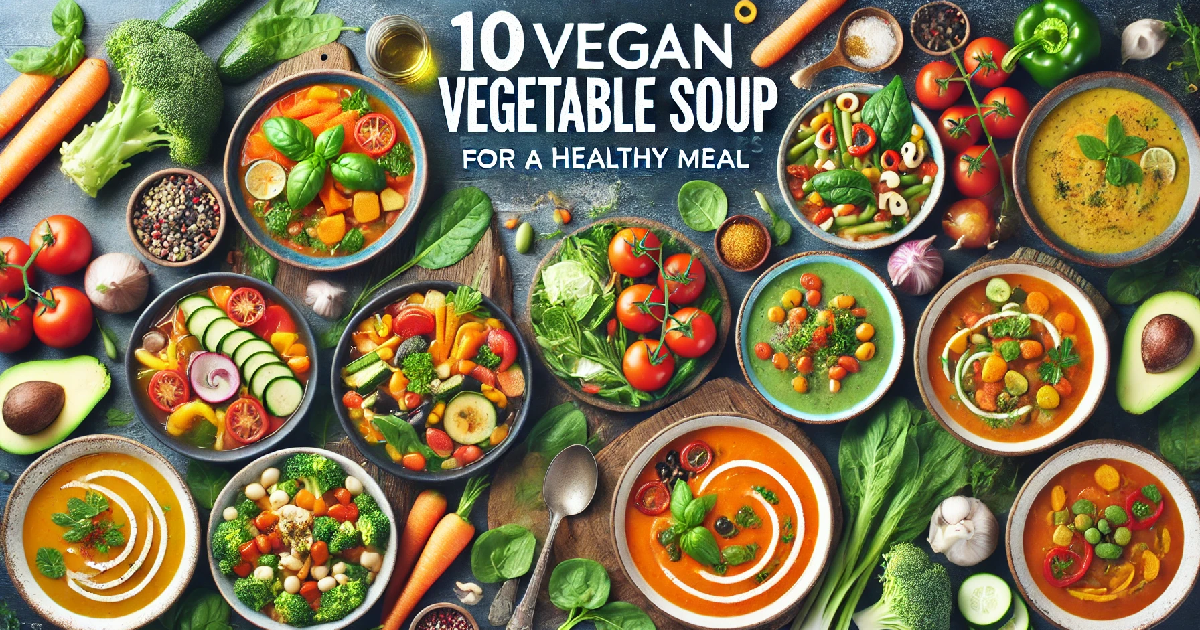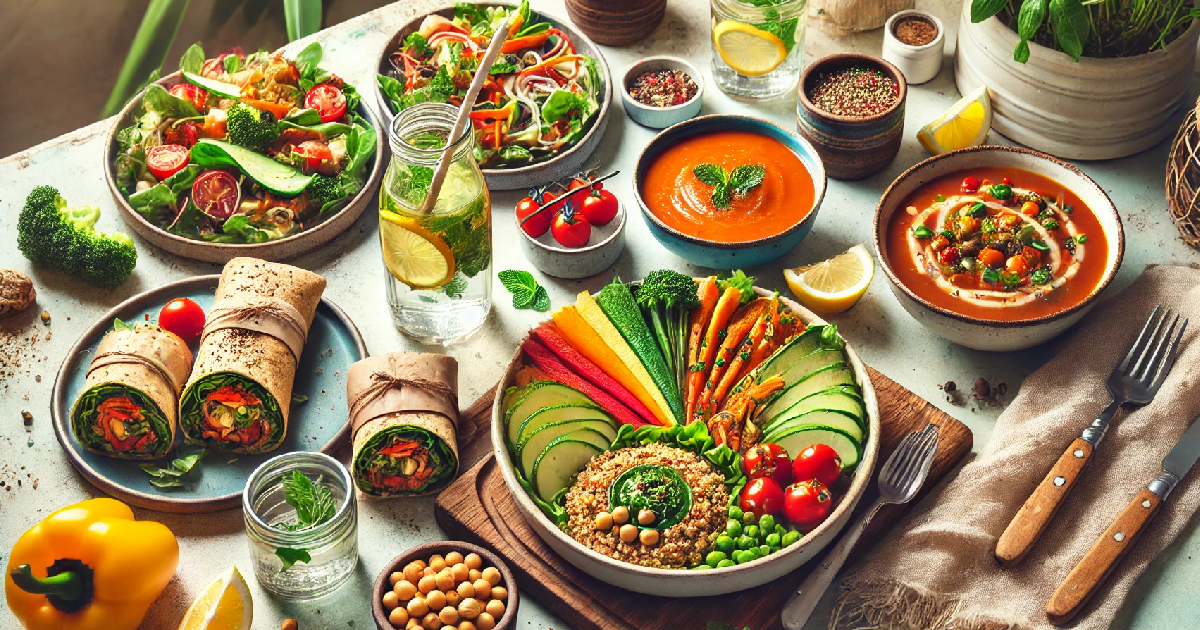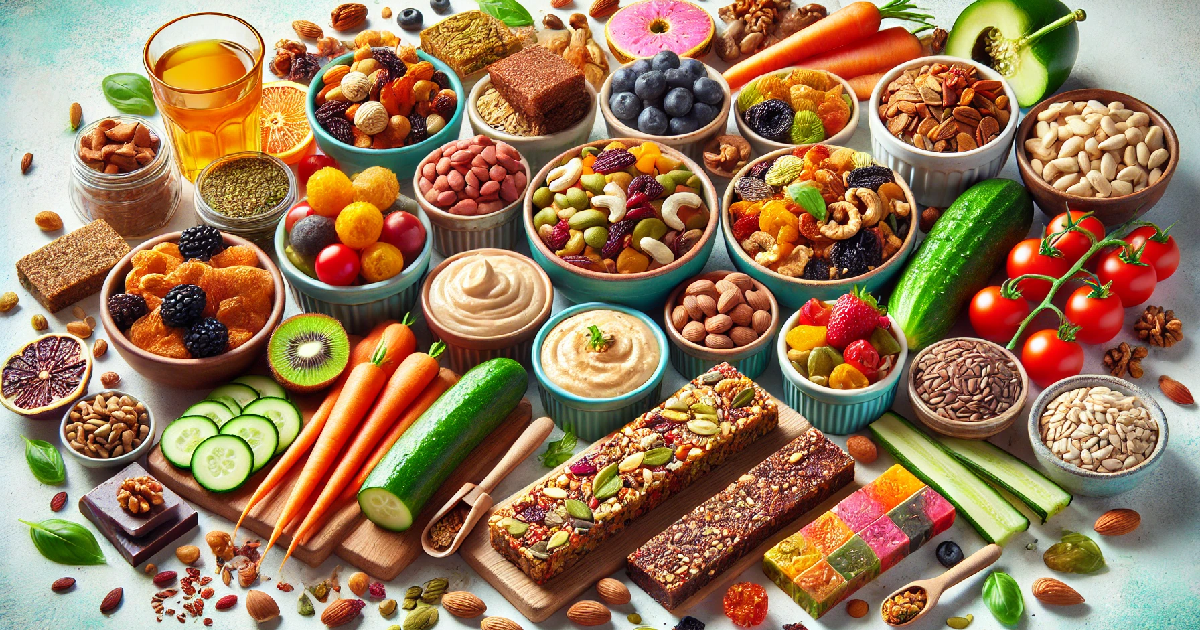Introduction
Embarking on a vegetarian journey can be both exciting and overwhelming. Whether you’re a seasoned vegetarian or just starting to explore this plant-based lifestyle, having a well-planned vegetarian grocery list is crucial for maintaining a balanced and nutritious diet. The benefits of vegetarianism are vast—from improving heart health and reducing the risk of chronic diseases to promoting a more sustainable and ethical way of living. But with the endless options available, how do you know which items are essential for a healthy vegetarian diet?
In this blog post, we delve into the top 10 vegetarian grocery items that are not only nutritious but also versatile and delicious. These staples will ensure that your kitchen is stocked with everything you need to create satisfying and wholesome meals. From fresh vegetables and fruits to protein-packed legumes and whole grains, we’ve got you covered. Get ready to transform your grocery shopping routine and elevate your vegetarian diet to new heights. Read on to discover the must-have items that will make your vegetarian grocery shopping a breeze and your diet a powerhouse of health and vitality.
What is a Vegetarian Grocery?
A vegetarian grocery is a collection of food items that do not include meat, poultry, or fish. These groceries consist mainly of plant-based foods such as fruits, vegetables, grains, nuts, seeds, and legumes. They can also include dairy products and eggs, depending on the type of vegetarian diet being followed.
The difference between vegetarian and vegan grocery items is significant. Vegetarian groceries can include animal by-products like milk, cheese, yogurt, and eggs, which are not part of a vegan diet. Vegan groceries, on the other hand, exclude all animal-derived products, focusing solely on plant-based foods.
Choosing the right vegetarian grocery items is crucial for maintaining a healthy diet. It ensures that individuals get all the necessary nutrients such as proteins, vitamins, and minerals. Proper selection helps avoid deficiencies and supports overall well-being.
Difference Between Vegetarian and Vegan Grocery Items
Vegetarian grocery items can be broadly categorized into lacto-vegetarian, ovo-vegetarian, and lacto-ovo vegetarian. Lacto-vegetarians include dairy products, ovo-vegetarians include eggs, and lacto-ovo vegetarians consume both. This flexibility allows vegetarians to have a diverse range of food choices.
Vegan grocery items are more restrictive as they eliminate all forms of animal products. This means no dairy, eggs, or any ingredients derived from animals, including honey. Vegans rely heavily on plant-based proteins such as beans, lentils, tofu, and seitan to meet their nutritional needs.
The primary challenge in vegan groceries is ensuring adequate intake of essential nutrients like Vitamin B12, iron, and omega-3 fatty acids. Fortified foods and supplements often become necessary to fill these nutritional gaps. In contrast, vegetarians usually find it easier to meet their nutritional requirements due to the inclusion of dairy and eggs.
Importance of Choosing the Right Vegetarian Grocery Items for a Healthy Diet
Selecting the right vegetarian grocery items is essential for achieving a balanced and nutritious diet. This involves incorporating a variety of fruits, vegetables, whole grains, and proteins. Diverse food choices help in obtaining a wide range of vitamins, minerals, and antioxidants.
Whole grains like quinoa, brown rice, and oats provide complex carbohydrates and fiber. These are important for digestive health and sustaining energy levels. Incorporating a variety of vegetables ensures a good intake of vitamins and minerals, supporting various bodily functions.
Nuts, seeds, and legumes are excellent sources of protein and healthy fats. They play a crucial role in muscle maintenance, heart health, and overall vitality. For vegetarians who include dairy and eggs, these provide additional sources of protein, calcium, and other vital nutrients.
Nutritional Comparison Table
Below is a table comparing the nutritional content of common vegetarian and vegan grocery items:
| Nutrient | Vegetarian Sources | Vegan Sources |
|---|---|---|
| Protein | Eggs, dairy (milk, cheese) | Tofu, lentils, chickpeas, quinoa |
| Calcium | Milk, yogurt, cheese | Fortified plant milk, leafy greens |
| Iron | Eggs, spinach | Lentils, beans, fortified cereals |
| Vitamin B12 | Dairy products, eggs | Fortified plant milk, supplements |
| Omega-3 | Eggs, flaxseed oil | Chia seeds, flaxseeds, walnuts |
This table highlights the need for careful planning in both vegetarian and vegan diets. It ensures all essential nutrients are adequately covered, promoting overall health and well-being.
Top 10 Vegetarian Grocery Items for a Healthy Diet
1. Fresh Vegetables
Including a variety of fresh vegetables in your diet is crucial for obtaining essential vitamins and minerals. Vegetables like spinach, kale, and broccoli are rich in iron and calcium, while bell peppers and carrots provide a good source of vitamins A and C. Regularly consuming a diverse range of vegetables ensures that you get a broad spectrum of nutrients necessary for overall health.
2. Fruits
Fruits play a vital role in a vegetarian diet by providing natural sugars, fiber, and numerous vitamins. Berries, such as blueberries and strawberries, are packed with antioxidants, while citrus fruits like oranges and grapefruits offer high levels of vitamin C. Including a variety of fruits in your diet helps boost your immune system and improve digestive health.
3. Whole Grains
Whole grains are essential for a balanced diet as they provide complex carbohydrates, fiber, and various vitamins and minerals. Examples of whole grains include quinoa, brown rice, and oats, all of which support sustained energy levels and digestive health. Incorporating whole grains into your meals can also help in maintaining a healthy weight.
4. Legumes and Beans
Legumes and beans are excellent sources of protein, fiber, and essential nutrients like iron and folate. Popular choices include lentils, chickpeas, and black beans, which can be easily added to soups, stews, and salads. Regular consumption of legumes and beans helps in maintaining muscle health and provides sustained energy.
5. Nuts and Seeds
Nuts and seeds are crucial in a vegetarian diet due to their high content of healthy fats, protein, and vitamins. Almonds, walnuts, chia seeds, and flaxseeds are particularly beneficial, offering omega-3 fatty acids and antioxidants. Including a handful of nuts and seeds in your daily diet can improve heart health and support brain function.
6. Dairy or Dairy Alternatives
For vegetarians who consume dairy, options like milk, cheese, and yogurt provide calcium and protein. For those who prefer or need alternatives, plant-based options such as almond milk, soy yogurt, and coconut cheese are available. These alternatives are often fortified with essential nutrients like vitamin D and B12, making them a good substitute.
7. Tofu and Tempeh
Tofu and tempeh are valuable sources of plant-based protein and can be used in various dishes. Tofu is versatile and can be added to stir-fries, soups, and salads, while tempeh has a firmer texture and is great for grilling or baking. Both provide a complete protein profile, essential for muscle repair and growth.
8. Plant-Based Protein Sources
Other plant-based protein options include seitan, quinoa, and edamame. These foods are rich in protein and can be incorporated into a variety of meals to ensure adequate protein intake. Including different plant-based proteins helps in diversifying your diet and meeting your nutritional needs.
9. Healthy Oils
Healthy oils like olive oil, coconut oil, and avocado oil are important for cooking and dressing salads. These oils provide essential fatty acids and support heart health. Using healthy oils in moderation can enhance the flavor of your meals while contributing to overall wellness.
10. Herbs and Spices
Herbs and spices not only enhance the flavor of vegetarian dishes but also offer various health benefits. Turmeric, ginger, garlic, and basil are examples of herbs and spices that have anti-inflammatory and antioxidant properties. Keeping a well-stocked spice rack ensures that your meals are flavorful and nutritious.
Nutritional Comparison Table
Below is a table summarizing the nutritional benefits of these top vegetarian grocery items:
| Category | Examples | Key Nutrients |
|---|---|---|
| Fresh Vegetables | Spinach, kale, broccoli | Iron, calcium, vitamins A and C |
| Fruits | Blueberries, oranges, grapefruits | Antioxidants, vitamin C, fiber |
| Whole Grains | Quinoa, brown rice, oats | Complex carbohydrates, fiber, vitamins |
| Legumes and Beans | Lentils, chickpeas, black beans | Protein, fiber, iron, folate |
| Nuts and Seeds | Almonds, walnuts, chia seeds, flaxseeds | Healthy fats, protein, omega-3, vitamins |
| Dairy/Dairy Alternatives | Milk, cheese, soy yogurt | Calcium, protein, fortified vitamins |
| Tofu and Tempeh | Tofu, tempeh | Complete protein, calcium, iron |
| Plant-Based Proteins | Seitan, quinoa, edamame | Protein, essential amino acids |
| Healthy Oils | Olive oil, coconut oil, avocado oil | Essential fatty acids, vitamin E |
| Herbs and Spices | Turmeric, ginger, garlic, basil | Antioxidants, anti-inflammatory compounds |
This table highlights the importance of including a variety of these items in your diet to ensure a balanced intake of essential nutrients.
How to Create a Vegetarian Grocery List on a Budget?
Creating a vegetarian grocery list on a budget is possible with some strategic planning. Focus on buying in-season produce as it is often cheaper and fresher. Purchase staples like beans, lentils, and whole grains in bulk to save money.
Affordable vegetarian grocery items include rice, pasta, canned beans, frozen vegetables, and seasonal fruits. These items are versatile, nutritious, and cost-effective. Planning meals around these staples can help stretch your grocery budget without compromising on nutrition.
Buying generic or store brands instead of name brands can also help reduce costs. Additionally, taking advantage of sales, discounts, and coupons can significantly lower grocery expenses.
What Are Some Vegetarian Grocery Essentials for Beginners?
For those new to a vegetarian diet, there are several must-have items to get started. Fresh vegetables and fruits should be at the top of the list, providing essential vitamins and minerals. Whole grains like quinoa, brown rice, and oats are also crucial for their fiber and energy content.
Simple and versatile ingredients such as beans, lentils, tofu, and nuts are important. These can be used in a variety of dishes, making meal preparation easier and more flexible. Having a selection of herbs and spices like basil, oregano, and cumin enhances the flavor of vegetarian meals.
Stocking up on dairy or dairy alternatives like milk, cheese, and yogurt ensures you have sufficient protein and calcium. These basics provide a solid foundation for a healthy and balanced vegetarian diet.
How to Plan a Balanced Vegetarian Grocery Shopping List?
A balanced vegetarian grocery shopping list includes a variety of foods to ensure all nutritional needs are met. Key components include fresh produce, whole grains, legumes, nuts, seeds, and dairy or dairy alternatives. These food groups provide essential nutrients like proteins, vitamins, and minerals.
Ensuring variety in your grocery list is important to avoid dietary monotony and nutrient deficiencies. Rotate different types of vegetables, fruits, and grains each week. Including a mix of colors and types of produce helps cover a broad spectrum of nutrients.
Incorporate different protein sources like beans, tofu, and nuts to ensure adequate protein intake. Planning meals ahead of time and creating a list based on those plans can help maintain balance and nutrition. This approach helps in making informed choices while shopping and avoids unnecessary purchases.
Nutritional Comparison Table
Below is a table summarizing the nutritional benefits of budget-friendly and essential vegetarian grocery items:
| Category | Examples | Key Nutrients | Budget Tips |
|---|---|---|---|
| Fresh Vegetables | Spinach, carrots, potatoes | Vitamins A, C, K, fiber | Buy in-season and local produce |
| Fruits | Apples, bananas, oranges | Vitamin C, fiber, antioxidants | Purchase in bulk or from farmers markets |
| Whole Grains | Brown rice, oats, whole wheat pasta | Complex carbohydrates, fiber, B vitamins | Buy in bulk and store properly |
| Legumes and Beans | Lentils, black beans, chickpeas | Protein, fiber, iron, folate | Opt for dried beans instead of canned |
| Nuts and Seeds | Peanuts, sunflower seeds, chia seeds | Healthy fats, protein, omega-3 | Buy in bulk, choose unsalted varieties |
| Dairy/Dairy Alternatives | Milk, yogurt, soy milk | Calcium, protein, vitamin D | Look for sales and use store brands |
| Tofu and Tempeh | Firm tofu, tempeh | Protein, calcium, iron | Buy in larger quantities and store properly |
| Plant-Based Proteins | Seitan, edamame, quinoa | Protein, essential amino acids | Prepare at home to save on pre-made options |
| Healthy Oils | Olive oil, canola oil, coconut oil | Essential fatty acids, vitamin E | Buy larger bottles for cost efficiency |
| Herbs and Spices | Basil, oregano, turmeric | Antioxidants, anti-inflammatory properties | Grow herbs at home if possible |
This table highlights both the nutritional benefits and budget-friendly tips for each category, helping you make informed and economical choices while shopping for a vegetarian diet.
Conclusion
Having a well-planned vegetarian grocery list is essential for ensuring a balanced and nutritious diet. By carefully selecting a variety of fruits, vegetables, whole grains, legumes, nuts, and seeds, you can meet your nutritional needs and enjoy a wide range of delicious meals.
Incorporating the top 10 vegetarian grocery items into your diet can greatly enhance your overall health. These foods provide essential nutrients that support various bodily functions, boost immunity, and promote long-term well-being. Whether you are new to a vegetarian lifestyle or a seasoned pro, these staples can help you maintain a healthy and diverse diet.
Maintaining a healthy vegetarian lifestyle is not just about what you eat, but also about how you approach food. It’s about making conscious choices that benefit your body and the environment. As you continue on your vegetarian journey, remember that every meal is an opportunity to nourish your body and make a positive impact on the world around you.
In the end, embracing a vegetarian lifestyle is a commitment to health, sustainability, and mindful living. It’s a journey of discovering new flavors, exploring different cuisines, and understanding the profound connection between food and wellness. As you reflect on your dietary choices, consider how each bite contributes to your health and the health of the planet. By choosing a vegetarian diet, you are not only taking care of yourself but also making a statement about the kind of world you want to live in.
FAQs
1. Which Muslims are vegetarians?
While vegetarianism is not a widespread practice among Muslims, some individuals and families choose a vegetarian diet for health, environmental, or ethical reasons. The choice to follow a vegetarian lifestyle is personal and can be influenced by various factors, including cultural practices and personal beliefs. There is no specific group of Muslims that are predominantly vegetarian, but interest in plant-based diets is growing among Muslims worldwide.
2. What is a list of vegetarian foods?
A comprehensive list of vegetarian foods includes a variety of plant-based items such as:
- Fresh Vegetables: Spinach, kale, broccoli, carrots, and bell peppers.
- Fruits: Apples, bananas, oranges, berries, and grapes.
- Whole Grains: Brown rice, quinoa, oats, and whole wheat bread.
- Legumes and Beans: Lentils, chickpeas, black beans, and kidney beans.
- Nuts and Seeds: Almonds, walnuts, chia seeds, and flaxseeds.
- Dairy or Dairy Alternatives: Milk, cheese, yogurt, soy milk, and almond milk.
- Tofu and Tempeh: Versatile sources of protein for various dishes.
- Healthy Oils: Olive oil, coconut oil, and avocado oil.
- Herbs and Spices: Basil, cilantro, cumin, and turmeric.
3. How to shop for a vegetarian diet?
Shopping for a vegetarian diet involves selecting a variety of nutrient-dense foods to ensure balanced nutrition. Here are some tips:
- Plan Your Meals: Create a meal plan to know exactly what ingredients you need.
- Make a List: Write down all the items you need, focusing on fresh produce, whole grains, and protein sources.
- Shop the Perimeter: Start with the outer aisles of the grocery store where fresh produce and whole foods are typically located.
- Check Labels: Look for vegetarian-friendly labels on packaged goods and avoid items with hidden animal-derived ingredients.
- Buy in Bulk: Purchase beans, grains, and nuts in bulk to save money and reduce packaging waste.
4. Which country is famous for vegetarian food?
India is renowned for its rich and diverse vegetarian cuisine. A significant portion of the population follows a vegetarian diet due to cultural, religious, and personal reasons. Indian vegetarian dishes often include a variety of spices, lentils, vegetables, and grains, making it a vibrant and flavorful cuisine. Popular dishes include dal, paneer tikka, vegetable biryani, and a wide range of curries.
5. What are some high-protein vegetarian grocery items?
High-protein vegetarian grocery items include:
- Tofu and Tempeh: Excellent sources of plant-based protein.
- Legumes and Beans: Lentils, chickpeas, black beans, and kidney beans.
- Nuts and Seeds: Almonds, walnuts, chia seeds, and flaxseeds.
- Whole Grains: Quinoa and farro, which are higher in protein than other grains.
- Dairy or Alternatives: Greek yogurt, cottage cheese, and plant-based protein drinks.
6. Can I find vegetarian grocery items at any store?
Yes, most grocery stores carry a wide selection of vegetarian items:
- Mainstream Grocery Stores: Typically have a variety of fresh produce, grains, legumes, and plant-based protein options.
- Specialty Health Food Stores: Offer a more extensive range of vegetarian and vegan products, including specialty items like tempeh, tofu, and dairy alternatives.
- Online Retailers: Many online stores cater to vegetarian diets, providing convenient options for hard-to-find items.








